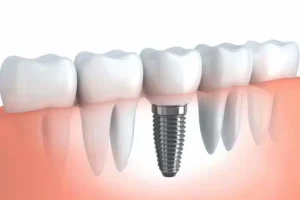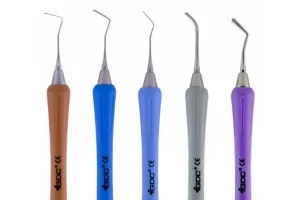Crooked or misaligned teeth can lead to serious problems for your oral health and overall well-being, but did you know that dental braces may help with this?
When your teeth overlap and are misaligned, food particles can get trapped between them. This makes brushing and flossing harder, leading to cavities, gum disease and other health issues.
1. Improved Oral Hygiene
Orthodontic braces can improve oral hygiene by taking food out of spaces that could otherwise trap plaque, leading to tooth decay and gum disease. This improved sanitation is a huge benefit for patients as it allows them to achieve a more attractive smile while decreasing the likelihood of future dental issues.
Misaligned or overlapping teeth put patients at greater risk for collecting bacteria, food debris and plaque in hard-to-access places. Bacteria feed on sugars from their diet, producing acids which attack their enamel resulting in cavities.
Maintaining dental cleanliness with traditional brushing methods can be difficult for some patients. Fortunately, nitinol, an advanced orthodontic treatment utilizing space age wires known as nitinol, offers patients a cleaner and healthier mouth. Nitinol wires are more retentive than metal archwires and require less frequent brushing than their metal counterparts.
2. Better Speech
Dental braces can help alleviate a range of speech issues, such as lisps, whistling and slurred speech.
A bite that is out of line or leans too far forward or back can also lead to speech issues. This can be embarrassing and frustrating for the individual.
Braces not only improve speech, but they can help protect teeth from injury when someone falls. Misaligned teeth can result in fractures or other damage if someone doesn’t get their bite right when they fall.
Braces not only offer obvious benefits to a person, but they can also boost their self-esteem and confidence. A beautiful smile can bring out the best in someone, leading to increased self-worth and improved confidence levels.
3. Less Risk of Gum Disease
Braces not only realign teeth, but they can also reduce the risk of gum disease. Untreated gingivitis could progress to more serious periodontal disease called periodontitis if left untreated.
Gum disease can result in bone loss and tooth loss, so it’s essential to get this condition under control – especially if there is a family history of gum disease.
Brushing and flossing are essential components of an effective oral hygiene program. If you struggle to keep up with them, your chances for developing bacterial buildup and less serious forms of gum disease increase.
Gum disease can be prevented with good oral hygiene and regular dental appointments. Unfortunately, if your gum disease is severe, orthodontic treatment may not be an option for you.
4. Better Digestion
Crooked teeth can lead to digestive issues like indigestion, gas, and heartburn. Braces can help you achieve optimal chewing ability and improved digestion by correcting bite misalignments.
Teeth that are crowded or overlapped create more difficult-to-reach places for food particles to collect and bacteria to multiply. Bacteria-laden plaque can lead to gum disease and tooth decay, both of which have detrimental effects on your oral health.
Braces can also enhance your oral hygiene by straightening teeth and making it simpler to brush and floss effectively. This may reduce the risk of cavities and gum disease, which have been linked to higher risks for diabetes and other health issues.
5. Better Sleep
When people hear “braces,” they usually envision straight teeth and a beautiful smile. However, orthodontic treatments offer more than just aesthetic benefits – they can actually improve sleep quality as well as promote overall health.
Crooked teeth and bite issues can lead to a variety of dental issues, such as snoring and sleep apnea. Orthodontic treatment is the solution to these issues by clearing away obstructions in the mouth and improving airflow through it.
In the initial weeks of your braces treatment, it’s normal to experience tender cheeks or gums. Applying dental wax on these areas can provide temporary relief from pain while you sleep – allowing you to sleep soundly at night and wake up feeling refreshed.





